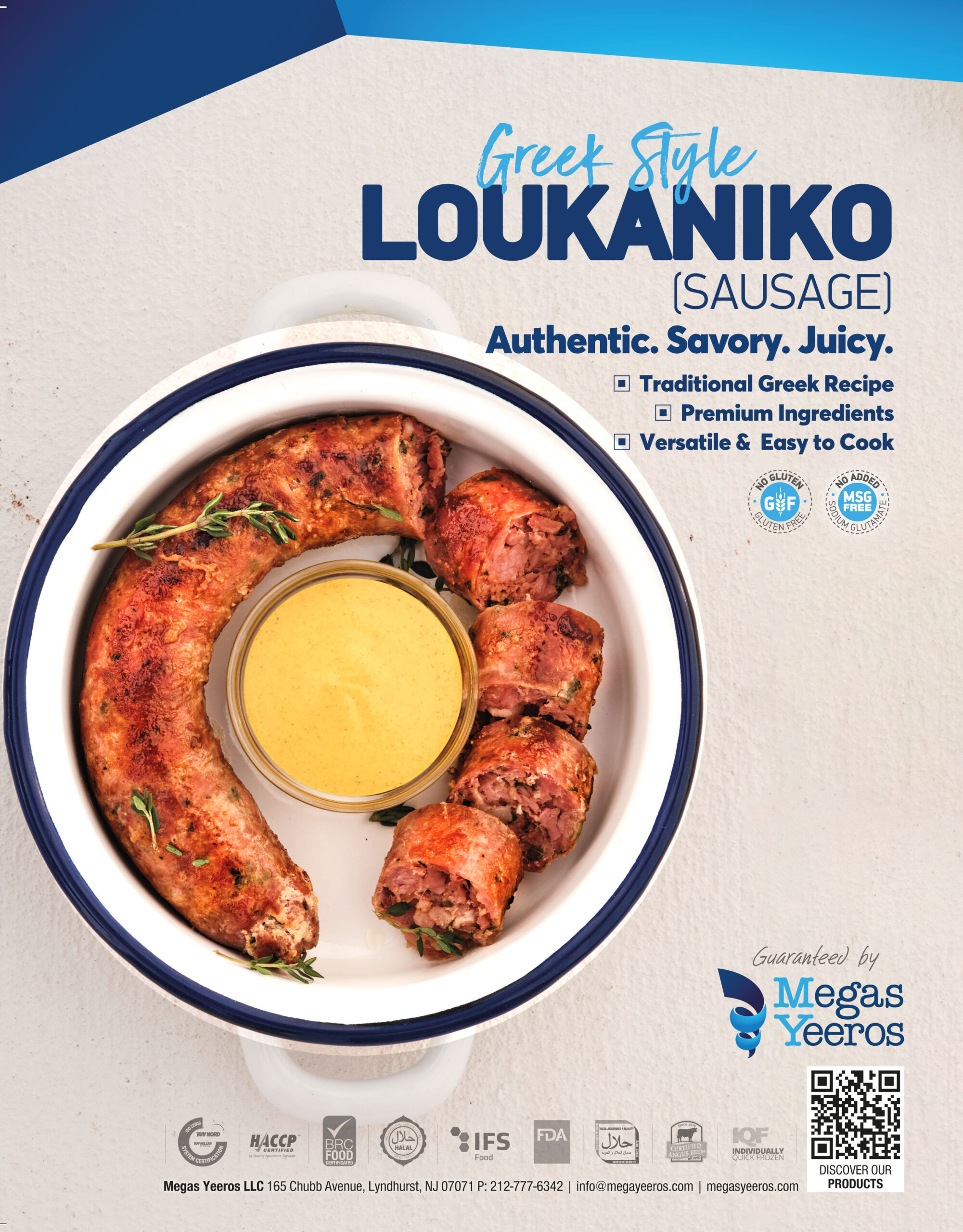Greece in Your Backyard
Posted by estiator at 28 April, at 10 : 26 AM Print
Homegrown Greek products win U.S. fans
By Michael Kaminer

In the U.S., we’re blessed with a number of importers who specialize in Greek products, from feta and olives to cheese and chocolate. But some producers feel such a strong connection to Greece that they produce their own Greek foods and beverages here in the States.
Many of them use provisions and ingredients imported from Greece; some are re-creating products like ouzo and baklava based on time-honored recipes. All of them are fiercely proud of the Greek specialties they’re sharing with American audiences.
Estiator caught up with some of the top purveyors, from a Maryland baker who’s following in the footsteps of her Chian great-grandparents to a tea purveyor who discovered the power of Greek herbs on a family pilgrimage to his hometown of Kastoria.
Astoria Tea Company
Astoria, New York
astoriatea.com
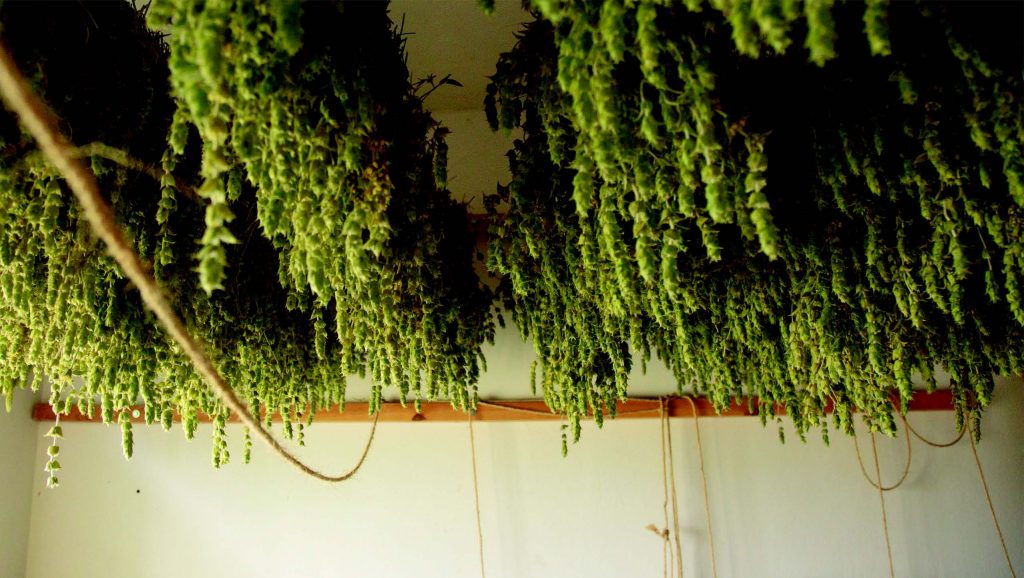
There was a silver lining to the autoimmune disease that afflicted Peter Zotis for years. It led him to discover the power of herbs—in particular, the power of Greek mountain herbs that have played a role in healing for thou-sands of years.The effects were so powerful that Zotis left his construction career to become a full-time Greek-tea evan-gelist. His shop, Astoria Tea Com-pany, opened on a bustling Queens street in 2018. The store carries only wild-gath-ered herbs produced mostly at high elevations and, when possible, under bio-certified conditions, Zotis tells Estiator. Basing his blends on family lore, academic research, and customer feedback, Zotis sells sleekly packaged teas with very particular benefits. The store itself is clean and airy, with white-washed walls and blond-wood accents. Zotis’ wife and partner, Jessica Yousif, designed the shop and its brand identity with her firm, Village Media.Astoria Tea Company’s Life Elixir combines St. John’s wort, dittany, and tribulus for detoxification and easing digestion. Iron Man mixes Greek mountain tea, nettle, and tribulus for “a super dose of iron” and boosted blood circulation. Shepherd’s Elixir offers an antioxidant-rich marriage of Greek mountain tea and pennyroyal. “We don’t give medical advice,” Zotis explains. “We just bring the best pos-sible product to market. But it’s very rewarding. People come into the store with struggles, and they find solace and healing in the products.”It all started with shingles, which Zotis couldn’t control with conven-tional medicine. On a trip to his fam-ily’s village of Kastoria, his relatives introduced him to locals who “knew this medicine since the days of Hippocrates,” Zotis says. “Greece has 6,800 herbs. Some of them helped me rebuild my body.”The store sells to consumers and wholesales to other retailers, but “restaurants don’t always want to pay a lot for tea,” Zotis said. “We’re moving into more corporate gifting next. It’s a wonderful experience to receive a gift of wellness.”
Papous Ouzo
Tarpon Springs, Florida
tarponspringsdistillery.net
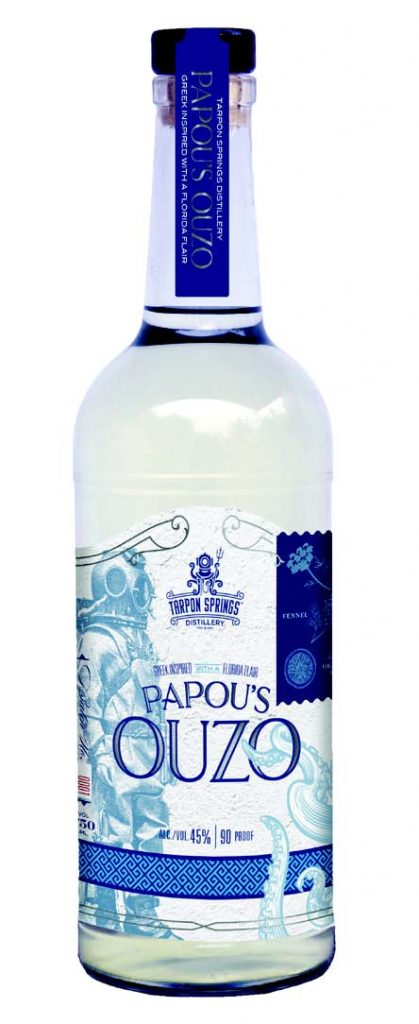
You can still hear Greek chatter on Athens Street in Tarpon Springs, Florida—home to one of the world’s largest Greek communities outside the motherland.So it makes sense that a prize-winning ouzo would come from this Gulf Coast town.Papous Ouzo made its debut in December 2019 as the first traditional, Greek-style ouzo made and bottled in the U.S. It’s produced by Tarpon Springs Distillery, which launched that same month. Known for its gins, the small-batch distillery took on ouzo as an homage to its hometown.
“If we were going to be selling in Tar-pon Springs, we knew we had to make something Greek,” says Barry Butler, a medical executive who founded the distillery with his wife, Lisa. “We found a blog with a guy’s ouzo moonshine rec-ipe. We took a few runs at it and added some botanical accents. And we had no shortage of locals to help us dial in the flavor.” The Butlers named their ouzo for the late Stephen “Papou” Katzaras, whose family owned the former ware-house where the distillery is housed. An instant hit, Papous Ouzo became a prizewinner for the distillery. The American Distilling Institute honored the spirit with three gold medals at the Certified Craft Distilled Spirits category at its annual Crafts Spirits competition, which blind-tastes and evaluates artisan products. Until the end of 2017, Butler explained, ouzo was misclassified as a liqueur in by the U.S. Alcohol and Tobacco Tax and Trade Bureau, part of the Department of the Treasury that regulates production of wine and spirits. “To sell a product as ouzo in the U.S., you had to add sugar to it, which is not how it’s made in Greece,” Butler says. “It’s more of a refreshing thing, not a sweet and sugary drink.” Once the law changed at the end of 2018, the Butlers became the first entrepreneurs to get a recipe approved by the government. Their formulation adds fennel seed and botanicals to the traditional aniseed base. Cinnamon stick, cloves, coriander, and orange zest round out the black licorice flavor profile. Straight from the bottle, Butler says, “it does taste like licorice.” But over ice, botanicals release more potently, and “it’s like Christmas in your mouth,” he says. Tarpon Springs Distillery produced about 3,000 bottles of Papous in 2020. This year, Butler expects to crank out 8,000 to 10,000 bottles, with wider distribution across the U.S. “I’d love to get in restaurants, especially in bigger cities,” Butler says. In the meantime, Papous Ouzo gets a ringing endorsement from people who know, Butler says. “The local Greek community will tell you it’s the best ouzo they’ve ever had.”
Mastiha Bakery
Kensington, Maryland
mastihabakery.com
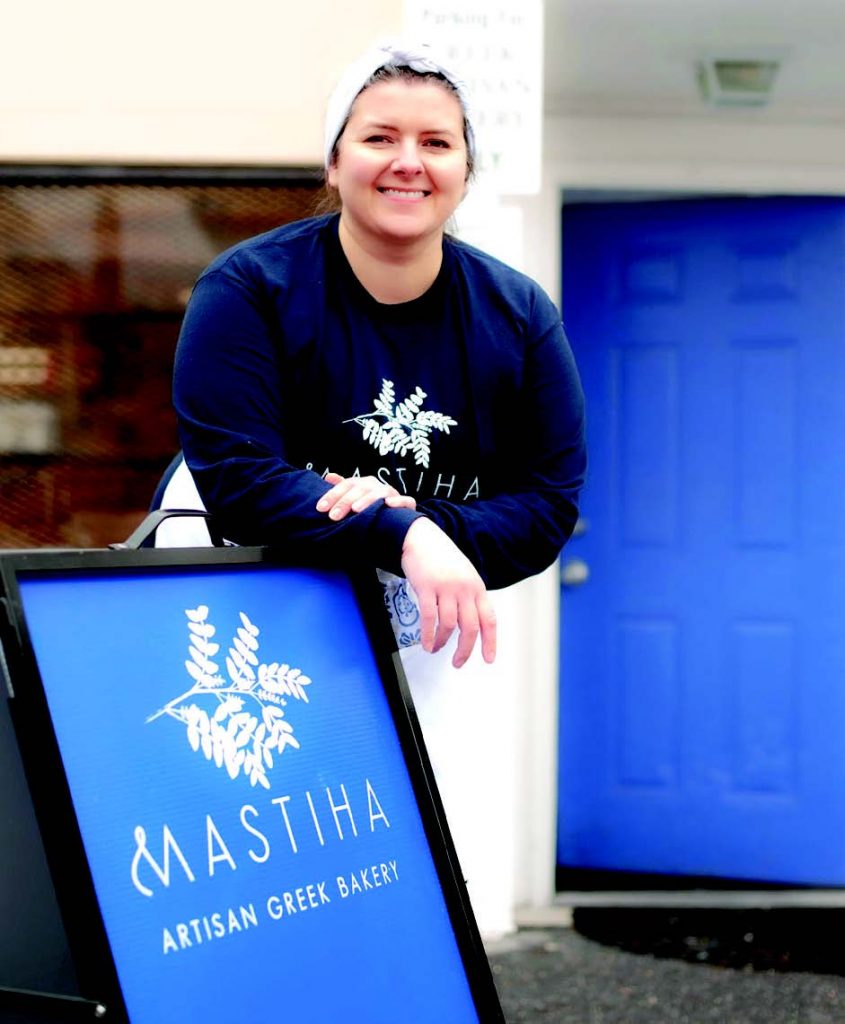
“You feel transported to Greece with every bite.” That’s not Katerina Georgallas talk-ing about Mastiha Bakery, her buzzy Maryland kitchen. It’s formidable Washingtonian food critic Ann Limpert singing the praises of Georgallas’ tiropita—and hailing it as one of the area’s best feta dishes. “I was really honored,” Georgallas tells Estiator. Georgallas launched the business in 2011 as Baklava Couture, selling one type of dessert inspired by a classic family recipe. “Our baklava is hands-down the best in the D.C. area,” she says. “It’s not overly sweet. We never use corn syrup—it’s cane sugar and honey, along with real butter. We don’t use preservatives. A lot of people who sell baklava, and it’s not made in-house.” Georgallas sold primarily at D.C.-area farmers’ markets.
A broader range of desserts led to retail accounts with local restaurants and shops. In 2014, Georgallas started experimenting with pita; after it hit the market, “it just took off. It’s now 50% of our business.” Her pita is the only Mastiha Bakery product with wide regional distribution, but Georgallas is working on packaging and recipes to get sweets ready for a national retail audience. Baking is in Georgallas’ DNA. Her maternal great-grandparents emigrated from Chios to Pittsburgh, where they opened a Greek bakery. “The recipes were handed down from great-aunt Sylvia to continue those traditions,” Georgallas says. “My mother taught me to make spanakopita when I was young. My father’s grandparents came from Crete, but didn’t really hold onto traditions. When I started the business, I took it upon myself to go deeper into my roots.” One link to her lineage is Chios mastiha, which Georgallas uses in Mastiha Bakery’s classic sugar cookie, a perennial favorite. “It provides the texture and sweetness with the butteriness,” she says. When the pandemic put Washington in lockdown, Georgallas started offering prepared gourmet frozen meals, including pasticcio and lamb. She has since expanded into “butcher boxes” with Greek and local products ready for cooking—think meats, eggs, pasta, beef, and even coffee. Customers pick up the boxes after ordering online.While Georgallas doesn’t have a retail location, it’s part of her plans. For now, customers can discover Mastiha at 60 retail locations that carry Georgallas’ pita and farmers markets where she offers a range of her baked goods, or direct by picking up at her kitchen.
Zoe’s Chocolates
Waynesboro, Pennsylvania
zoeschocolate.com
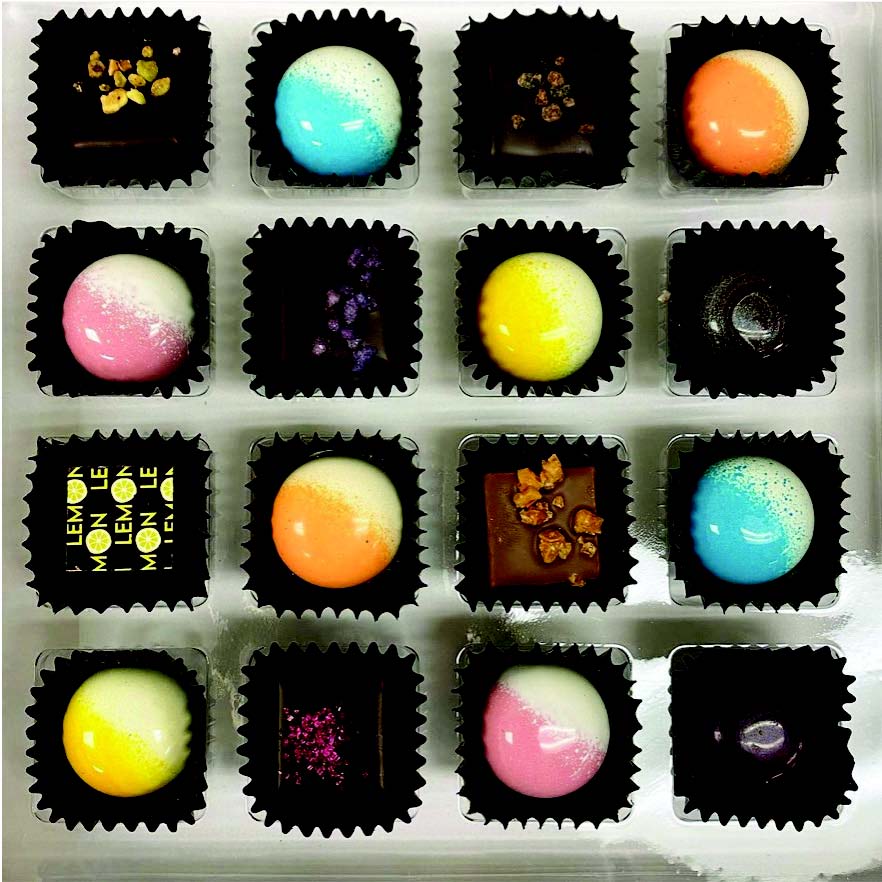
For the Tsoukatos clan, chocolate is a family business—in more ways than one. George Tsoukatos and children Pantelis, Zoe, and Petros and father launched Zoe’s Chocolates in 2007, winning fans like Martha Stewart and Anthony Bourdain with flavors like fleur de sel liquid caramel, pumpkin pie, and pistachio rose. Aside from its sweets, the company may ring a bell for its stint on The Profit, the CNBC show hosted by Greek-American entrepreneur Marcus Lemonis.But the Tsoukatos family chocolate saga stretches much further back, when a great aunt and uncle emigrated from Greece to sell sweets from a pushcart in Baltimore. That business grew into an enterprise, and George Tsoukatos became its master chocolatier. When the company folded and George got laid off, the Tsoukatos siblings decided to start their own chocolate company. And Zoe’s Chocolates was born. The company has made the use of Greek products a signature in its chocolates. An ouzo ganache and mastiha ganache were both hits. Greek honey infuses some chocolates, and “we’re particularly interested in the thyme honey that Greece has to offer,” Zoe Tsoukatos tells Estiator. “We’re also starting to launch a line of chocolates with honey from the Peloponnese, where we’re from. We’re in the process of sampling chestnut, orange, and flower honey.”Greece “has so many wonderful products that are not known outside of Greece,” Tsoukatos says. “The land and weather provide an exquisite environment for growing different herbs. A few years ago, I traveled the Peloponnese and was in awe of the different products each area had to offer.”The company’s recipes for success are working. Zoe’s has been tapped to pro-duce chocolates for Norwegian Cruise Lines and hotels; the company has created chocolates for the Oscars and the Emmys, made custom bonbons for actor Zach Galifianakis’s wedding, and got a shout-out in O, the Oprah Magazine.
Greek from Greece GFG Bakery-Café
NY and NJ, multiple locations
gfg-bakery.com
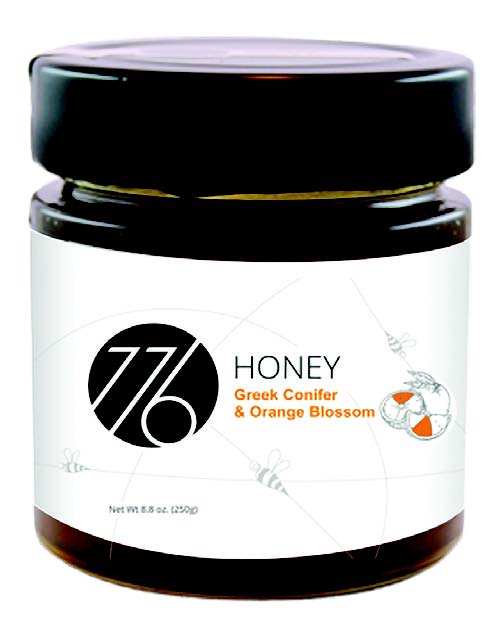
George Drousos’ ambitious franchise (see Estiator, March 2021) just launched its own private-label line of Greek products to accompany the Greek-imported ingredients and baked goods at his stores.Named for the year the Olympics were born—BC, of course—the 776 line will include olive oil, honey, feta, and hilopites, with more products expected to hit shelves this year.“We picked these products very care-fully,” Drousos tells Estiator. “We’re partnering with the best local farmers in Greece to focus on authentic, hand-picked ingredients.”Drousos thinks U.S. consumers will appreciate special qualities of Greek products. “With its Mediterranean climate, the Greek countryside is a fertile ground for a variety of fruits and vegetables, making its cuisine a colorful tapestry of flavors,” he says. “Greek products are carefully produced, and this is what makes them unique. 776 highlights this with its simple and clean packaging. We want the American consumer to love our products as much as we do.”








